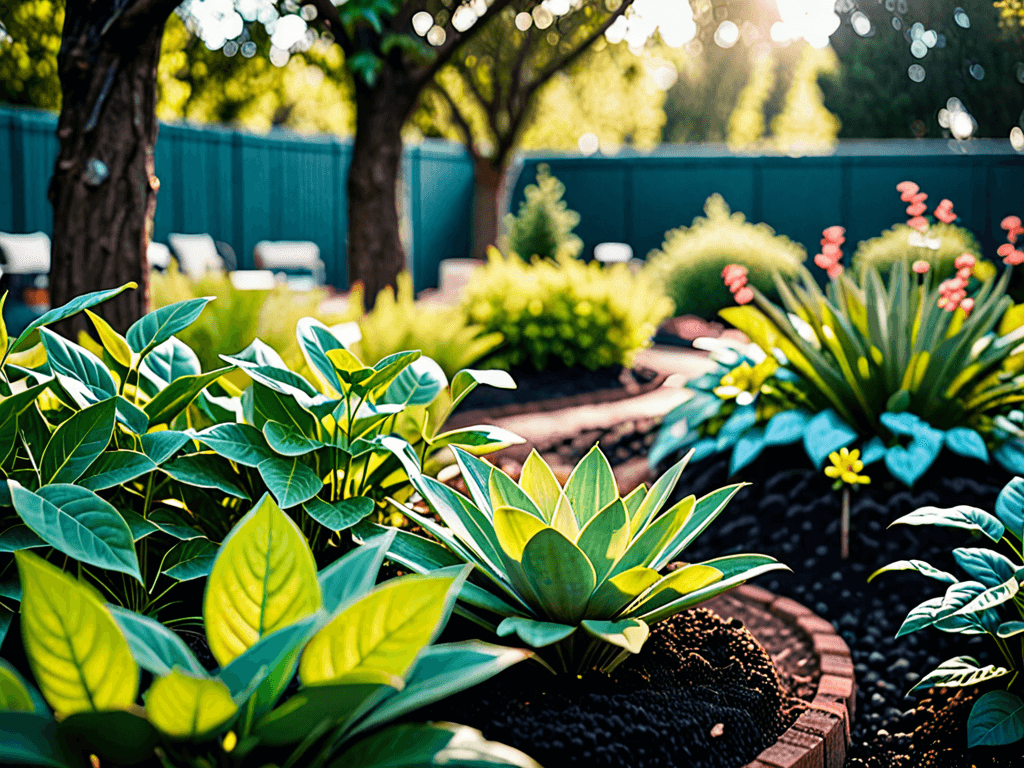This article provides useful tips for creating an eco-friendly garden through sustainable practices. It covers topics such as choosing the right plants, water conservation, organic pest control, soil improvement, and composting to promote biodiversity, enhance soil health, and reduce waste.
Choosing the right plants
Choosing the right plants is essential for sustainable gardening. Focus on native plants that are already adapted to the local environment, as they typically require less water and are more resistant to local pests and diseases.
Consider drought-tolerant species if your area experiences limited rainfall. Mixing different types of plants, such as perennials and annuals, can also help maintain biodiversity.
By selecting the right plants, you’ll create a garden that’s not only beautiful but also easier to maintain and better for the environment.
Water conservation
Water conservation is critical in sustainable gardening. Start by collecting rainwater in barrels to reduce dependency on mains water.
Install a drip irrigation system that delivers water directly to plant roots, minimizing evaporation and waste.
Mulching the soil surface can also help retain moisture and protect against weeds.
Choose drought-tolerant plants that require less frequent watering.
By adopting these practices, you can ensure your garden thrives while conserving a vital resource.
Organic pest control
Implementing organic pest control methods is a key aspect of sustainable gardening. Begin by attracting beneficial insects like ladybugs and lacewings that naturally prey on pests.
Introduce natural predators such as birds and frogs into your garden environment by providing habitats like birdhouses and small ponds.
Use plant-based oils and extracts, like neem oil, as natural pesticides that do not harm the environment.
Practice crop rotation to prevent pests from becoming established and employ companion planting to naturally deter harmful insects.
These strategies help maintain a healthy garden ecosystem without relying on synthetic chemicals.
Soil improvement
Improving soil quality is vital for a thriving, sustainable garden. Start by adding organic matter such as compost or aged manure, which enhances soil structure and fertility.
Conduct a soil test to determine nutrient levels and pH, then amend accordingly with natural solutions like lime or sulfur.
Use cover crops like clover or vetch during off-seasons to add nutrients and prevent erosion.
Mulching with organic materials, such as wood chips or straw, helps retain moisture and suppress weeds.
These practices contribute to a healthier root environment and promote robust plant growth.
Composting
Composting is a fundamental technique for enriching soil without synthetic fertilizers. Start with a balance of green materials like fruit peels and grass clippings for nitrogen, and brown materials such as leaves and twigs for carbon. Maintain moisture levels similar to a damp sponge, and turn the pile regularly to provide oxygen.
This process not only reduces waste but also creates rich humus that improves soil structure, encourages beneficial organisms, and supports healthy plant growth.
Conclusion
Embracing sustainable gardening practices can significantly benefit the environment and enhance the beauty of your garden.
By choosing the right plants, conserving water, employing organic pest control, and improving soil health, you contribute to a healthier ecosystem.
Furthermore, through composting and other eco-friendly techniques, you can reduce waste, promote biodiversity, and create a more sustainable future.
Ultimately, every small effort in your garden accumulates into a larger positive impact, fostering a greener planet for future generations.
Let these sustainable gardening tips guide you in making environmentally conscious choices that yield long-lasting results.
FAQ – Frequently Asked Questions about Sustainable Gardening
What is sustainable gardening?
Sustainable gardening involves practices that are environmentally friendly, such as using native plants, conserving water, and avoiding chemical pesticides.
How can I conserve water in my garden?
You can conserve water by using rain barrels, implementing drip irrigation systems, and selecting drought-tolerant plants.
What are the benefits of composting?
Composting enriches the soil by adding organic matter, reduces waste, and supports a healthy garden ecosystem.
Why is organic pest control important?
Organic pest control helps maintain an ecological balance, protecting beneficial insects while controlling harmful pests without chemicals.
How do native plants benefit a garden?
Native plants typically require less water, are suited to local climates, and support local wildlife, making them ideal for sustainable gardening.
What can I use for natural fertilizers?
Natural fertilizers can include compost, manure, and plant-based fertilizers like seaweed or alfalfa meal.
How can I improve soil quality sustainably?
Enhance soil quality by adding organic matter, rotating crops, and using cover crops to boost nutrients and structure.


